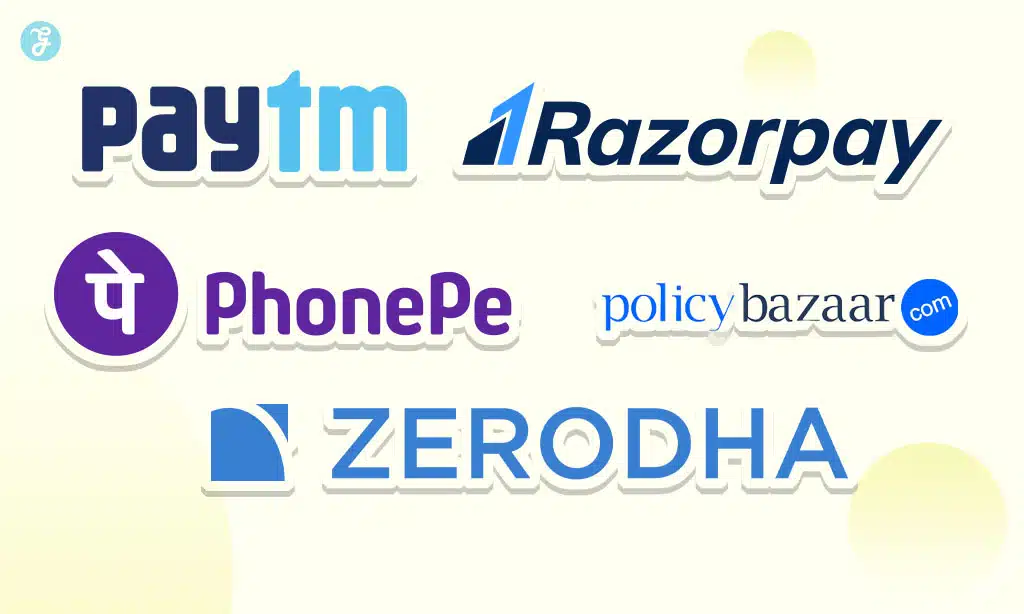The financial technology (fintech) industry has transformed the way we manage money, make payments, and access financial services. In India, fintech has grown tremendously, driven by rapid digitization, government initiatives, and a tech-savvy population.
From digital wallets to innovative loan solutions, fintech companies are making financial services more accessible and efficient for millions. With a blend of cutting-edge technology, user-centric approaches, and robust solutions, these companies have disrupted traditional financial models, making banking, investing, and transactions faster, safer, and more accessible.
This article explores the top fintech companies in India that are revolutionizing financial services, helping individuals and businesses alike.
What is Fintech and Its Role in India?
Fintech refers to the use of technology to improve and automate financial services. It covers areas like digital payments, lending, investment platforms, insurance technology, and more. In India, fintech has played a key role in:
- Financial inclusion: Bringing banking services to the unbanked population in rural areas.
- Ease of transactions: Popularizing digital wallets and UPI for quick payments.
- Economic growth: Supporting small businesses with easy credit and payment solutions.
Key Statistics:
- India is home to over 2,100 fintech startups (as of 2023).
- The fintech market in India is expected to reach $200 billion by 2030.
- Unified Payments Interface (UPI) processed over 9 billion transactions in October 2023 alone.
Key Fintech Statistics in India
| Statistic | Value |
| Fintech Startups | 2,100+ (2023) |
| Market Size (Expected 2030) | $200 billion |
| UPI Transactions (Oct 2023) | 9 billion |
Why India is a Hub for Fintech Innovation?
India’s fintech revolution is fueled by:
- Large population: With over 1.4 billion people, India offers a vast market for financial services.
- Digital transformation: Government initiatives like Digital India and Aadhaar-linked payments have accelerated fintech adoption.
- Smartphone penetration: Affordable smartphones and data plans have enabled even rural populations to access digital financial services.
- Supportive policies: Regulations like UPI and startups’ access to financial data have spurred innovation.
Factors Driving Fintech Growth in India
| Factor | Description |
| Large Population | High demand for digital financial services |
| Government Initiatives | Digital India, UPI, Aadhaar |
| Smartphone Penetration | Affordable devices and internet |
| Supportive Policies | Pro-fintech regulations and ecosystem |
Criteria for Selection: What Makes a Top Fintech Company?
The companies featured in this article have been selected based on:
- Innovation and technology-driven solutions.
- Their impact on the market and customer base.
- Their contribution to solving key financial challenges.
- Scalability and sustainable growth.
Top 10 Fintech Companies in India
India’s fintech landscape has been booming, revolutionizing the way individuals and businesses manage their finances. From seamless digital payments to innovative lending solutions, fintech companies in India are driving financial inclusion and empowering millions.
Whether you’re a tech-savvy investor, a small business owner, or just someone looking for better financial tools, these trailblazers have something for everyone. Here’s a look at the top 10 fintech companies in India that are shaping the future of finance.
1. Paytm: Transforming Digital Payments
Founded in 2010 by Vijay Shekhar Sharma under One97 Communications, Paytm has evolved into a comprehensive digital ecosystem offering a wide array of financial services.
Key Features:
- Digital Wallet: Enables users to store money digitally for quick transactions.
- Paytm Payments Bank: Offers zero-balance savings accounts with competitive interest rates.
- Financial Services: Provides mutual fund investments through Paytm Money and facilitates personal and business loans.
Milestones:
- IPO: In November 2021, Paytm’s parent company, One97 Communications, launched India’s largest-ever IPO, raising $2.5 billion.
- User Base: As of 2023, Paytm boasts over 450 million registered users, making it one of India’s most widely used digital payment platforms.
Paytm Key Services
| Service | Description |
| Digital Wallet | Quick payments via QR codes |
| Paytm Bank | Zero-balance savings account |
| Loan Services | Instant personal and business loans |
2. Razorpay: Redefining Online Payment Solutions
Established in 2014 by Harshil Mathur and Shashank Kumar, Razorpay has become a leading payment solutions provider, catering to businesses of all sizes with innovative financial tools.
Key Features:
- Payment Gateway: Supports over 100 payment methods, ensuring seamless transactions for businesses.
- RazorpayX: A neobanking platform offering corporate banking services, including payroll management and expense tracking.
- Razorpay Capital: Provides working capital loans to small and medium enterprises (SMEs) to support their growth.
Milestones:
- Transaction Volume: Processes over $80 billion in annualized transactions, reflecting its significant role in India’s digital payment landscape.
- Clientele: Serves over 8 million businesses, including prominent names like Facebook, Airtel, and BookMyShow.
Razorpay Services
| Service | Description |
| Payment Gateway | Secure online payment collection |
| RazorpayX | Corporate banking and payroll management |
| Loans | Working capital for small businesses |
3. PhonePe: Revolutionizing UPI Payments
Launched in 2015 by Sameer Nigam, Rahul Chari, and Burzin Engineer, PhonePe has rapidly become a dominant player in India’s Unified Payments Interface (UPI) ecosystem.
Key Features:
- UPI Payments: Facilitates instant bank-to-bank transfers with a user-friendly interface.
- Bill Payments and Recharges: Allows users to pay utility bills, recharge mobile phones, and more.
- Financial Products: Offers mutual fund investments, insurance products, and gold purchases.
Milestones:
- User Base: Surpassed 500 million registered users, highlighting its widespread adoption.
- Transaction Volume: Processes over 4 billion transactions monthly, showcasing its pivotal role in digital payments.
PhonePe Services
| Service | Description |
| UPI Payments | Instant money transfers |
| Insurance Plans | Health, term, and car insurance |
| Wealth Management | Mutual fund investments |
4. PolicyBazaar: Simplifying Insurance
Founded in 2008 by Yashish Dahiya, Alok Bansal, and Avaneesh Nirjar, PolicyBazaar has transformed the insurance sector by providing a transparent platform for comparing and purchasing insurance policies.
Key Features:
- Insurance Comparison: Enables users to compare various insurance policies across categories like health, life, and motor insurance.
- Claims Assistance: Offers end-to-end support during the claim process, ensuring a hassle-free experience.
- Partnerships: Collaborates with leading insurance providers to offer a wide range of options to consumers.
Milestones:
- Stock Market Listing: Went public in 2021, reflecting its growth and investor confidence.
- Customer Trust: Trusted by over 10 million customers, underscoring its reputation in the insurance domain.
PolicyBazaar Insurance Types
| Insurance Type | Description |
| Health | Covers medical expenses |
| Life | Financial security for dependents |
| Motor | Insurance for cars and two-wheelers |
5. Zerodha: Democratizing Stock Trading
Established in 2010 by Nithin and Nikhil Kamath, Zerodha has disrupted the traditional brokerage industry with its discount brokerage model, making stock trading accessible to the masses.
Key Features:
- Flat Fee Brokerage: Charges a flat fee per trade, significantly reducing costs for traders and investors.
- Diverse Trading Options: Offers trading in equities, commodities, currencies, and mutual funds.
- Educational Initiatives: Provides learning platforms like Varsity to educate investors about the stock market.
Milestones:
- User Base: Over 10 million active users, making it one of the largest brokerage firms in India.
- Market Share: Accounts for approximately 20% of daily retail trading volumes in India.
Zerodha Trading Options
| Product | Description |
| Stocks | Equity trading |
| Mutual Funds | SIPs and lump sum investments |
| Commodities | Futures and options trading |
6. BharatPe: Enabling Merchant Digital Payments
BharatPe was founded in 2018 by Ashneer Grover and Shashvat Nakrani to empower small businesses in India with digital payment solutions. Unlike traditional payment platforms, BharatPe focuses on providing merchants with tools to scale their operations through hassle-free payments and financing options.
Key Features:
- QR Code Payments: BharatPe supports interoperable QR code payments, enabling merchants to accept UPI payments from any payment app.
- Merchant Loans: The platform offers interest-free loans to small businesses, making access to credit seamless and quick.
- POS Machines: BharatPe equips merchants with robust point-of-sale systems that facilitate card payments and digital transactions.
Milestones:
- BharatPe has expanded its network to over 10 million merchants across India.
- It has disbursed more than ₹7,500 crores in loans to small and medium businesses.
- BharatPe introduced its 12% Club product, allowing customers to earn high returns on investments.
BharatPe Features
| Feature | Description |
| QR Payments | Accept payments via QR codes |
| Merchant Loans | Interest-free loans for SMBs |
| POS Solutions | Digital POS terminals for sales |
7. CRED: Redefining Credit Card Management
CRED, founded by Kunal Shah in 2018, stands out for its unique approach to credit card management. The platform not only rewards users for paying credit card bills on time but also offers features to track and improve financial health.
Key Features:
- Bill Payments: Simplifies credit card bill payments by aggregating multiple cards in one interface.
- Rewards System: Offers exclusive deals and discounts as rewards for timely payments.
- Financial Tools: Provides free credit score checks and insights to improve financial habits.
Milestones:
- Over 7.5 million users within three years of launch.
- Partnerships with top-tier brands like Amazon and Myntra for reward systems.
CRED Benefits
| Benefit | Description |
| Bill Rewards | Earn rewards for timely credit payments |
| Credit Score | Free credit score checks |
| Personal Loans | Quick, low-interest loans |
8. Lendingkart: Streamlining SME Loans
Lendingkart, founded in 2014 by Harshvardhan Lunia and Mukul Sachan, has revolutionized small business financing by using AI and machine learning to assess creditworthiness. Its primary focus is on providing quick and hassle-free loans to SMEs.
Key Features:
- AI-Powered Loan Approvals: Utilizes data analytics to process applications efficiently.
- Flexible Repayment Plans: Offers repayment options tailored to business cash flows.
- No Collateral Loans: Provides unsecured loans to small businesses.
Milestones:
- Disbursed over ₹7,000 crores in loans to 1,50,000+ businesses.
- Operations expanded to over 1,300 cities across India.
Lendingkart Features
| Feature | Description |
| Instant Loans | Fast loan approvals for SMBs |
| AI Analysis | Data-driven loan assessments |
| Paperless Process | Completely digital application |
9. Groww: Simplifying Investments
Groww, founded in 2016 by Lalit Keshre, Harsh Jain, Ishan Bansal, and Neeraj Singh, is a digital-first investment platform designed for new-age investors. It simplifies investing by providing a seamless interface for mutual funds, stocks, and other financial products.
Key Features:
- Easy Investment Access: Allows users to invest in mutual funds, stocks, gold, and more through a single platform.
- Zero Brokerage: Charges no brokerage fees for equity delivery trades.
- Educational Resources: Offers resources to help first-time investors understand financial markets.
Milestones:
- Serves over 40 million registered users.
- Raised $83 million in Series D funding in 2021, becoming a unicorn.
Groww Features
| Feature | Description |
| Mutual Funds | SIP and one-time investments |
| Stock Trading | Zero brokerage on equity trades |
| User Interface | Simple and intuitive platform |
10. MobiKwik: Advancing Digital Wallet Solutions
Founded in 2009 by Bipin Preet Singh and Upasana Taku, MobiKwik has established itself as one of India’s leading digital wallet platforms. It combines wallet services with Buy Now, Pay Later (BNPL) features to enhance financial accessibility.
Key Features:
- BNPL Services: Offers instant credit for purchases with flexible repayment options.
- Comprehensive Payment Ecosystem: Supports utility bill payments, mobile recharges, and e-commerce transactions.
- Credit-Linked Wallet: Integrates credit lines directly into the digital wallet.
Milestones:
- Over 120 million registered users.
- Raised $20 million in funding from Abu Dhabi Investment Authority in 2021.
MobiKwik Features
| Feature | Description |
| Digital Wallet | Quick payments and transactions |
| BNPL Services | Easy credit for purchases |
| Bill Payments | Utilities and recharges |
Trends in the Indian Fintech Industry
- UPI dominance and digital wallets.
- Rise of neobanking and digital lending.
- Integration of blockchain and AI for better security and user experience.
Emerging Fintech Trends
| Trend | Impact |
| UPI Growth | Seamless, instant transactions |
| Neobanking | Digital-first banking solutions |
| AI and Blockchain | Enhanced security and innovation |
Challenges and Opportunities for Fintech in India
- Challenges:
- Regulatory hurdles.
- Cybersecurity risks.
- Opportunities:
- Expanding into rural markets.
- Offering innovative financial products.
Fintech Challenges and Opportunities
| Category | Details |
| Challenges | Regulatory hurdles, cybersecurity |
| Opportunities | Rural market expansion, innovation |
Takeaways
India’s fintech sector has become a cornerstone of the nation’s economic transformation, making financial services more accessible and efficient for millions. Companies such as Paytm, Razorpay, and PhonePe are spearheading digital innovation, guaranteeing smooth payment experiences and promoting financial inclusion.
Each of the highlighted fintech firms plays a unique role in addressing diverse financial needs—from simplifying investments to offering cutting-edge credit solutions. As technology continues to evolve, these companies are poised to drive further disruption in the industry, creating new opportunities for both individuals and businesses.
For readers, this journey highlights the profound impact of fintech and underscores the importance of staying informed about these groundbreaking developments in India’s financial landscape.





































